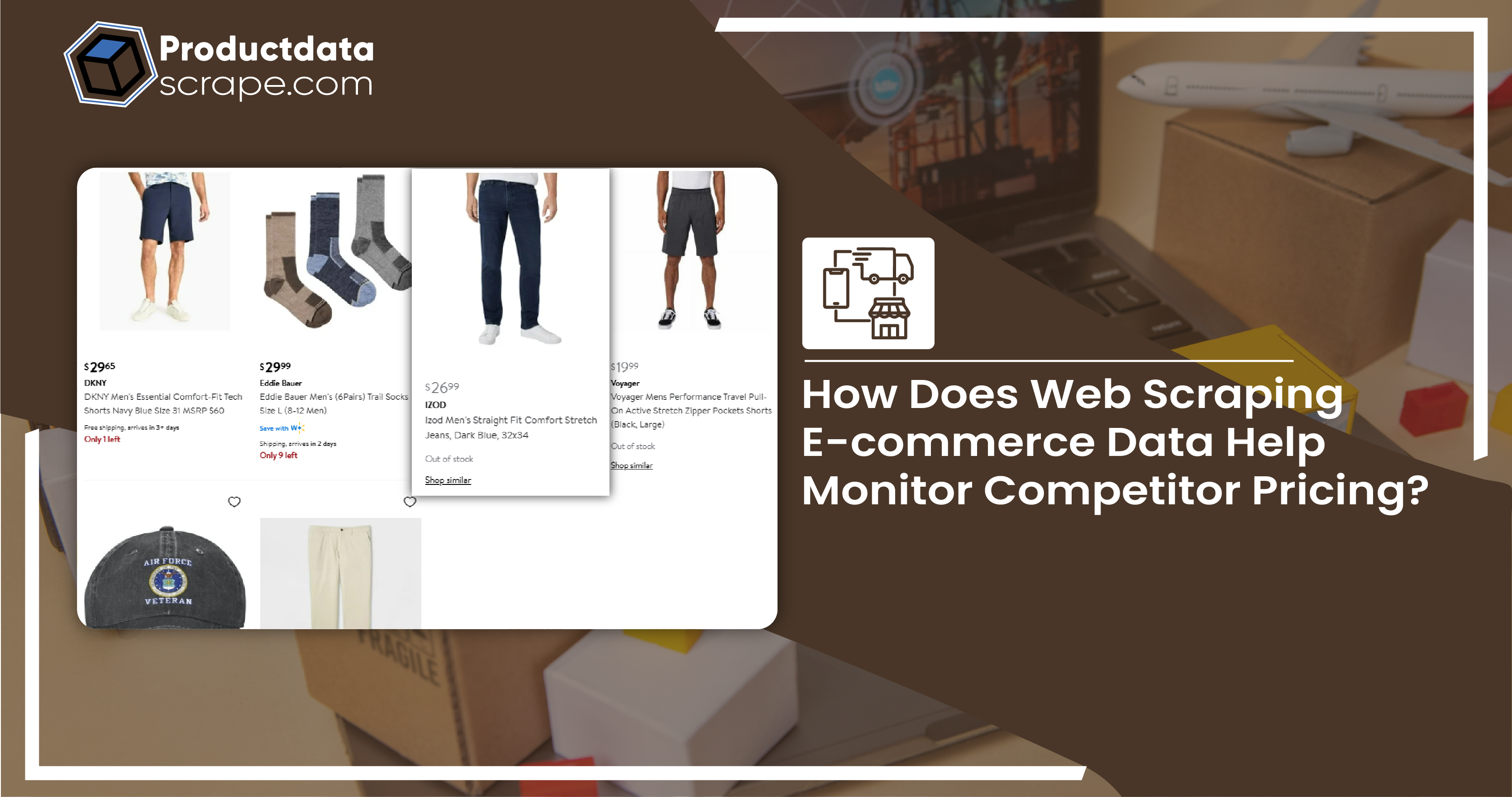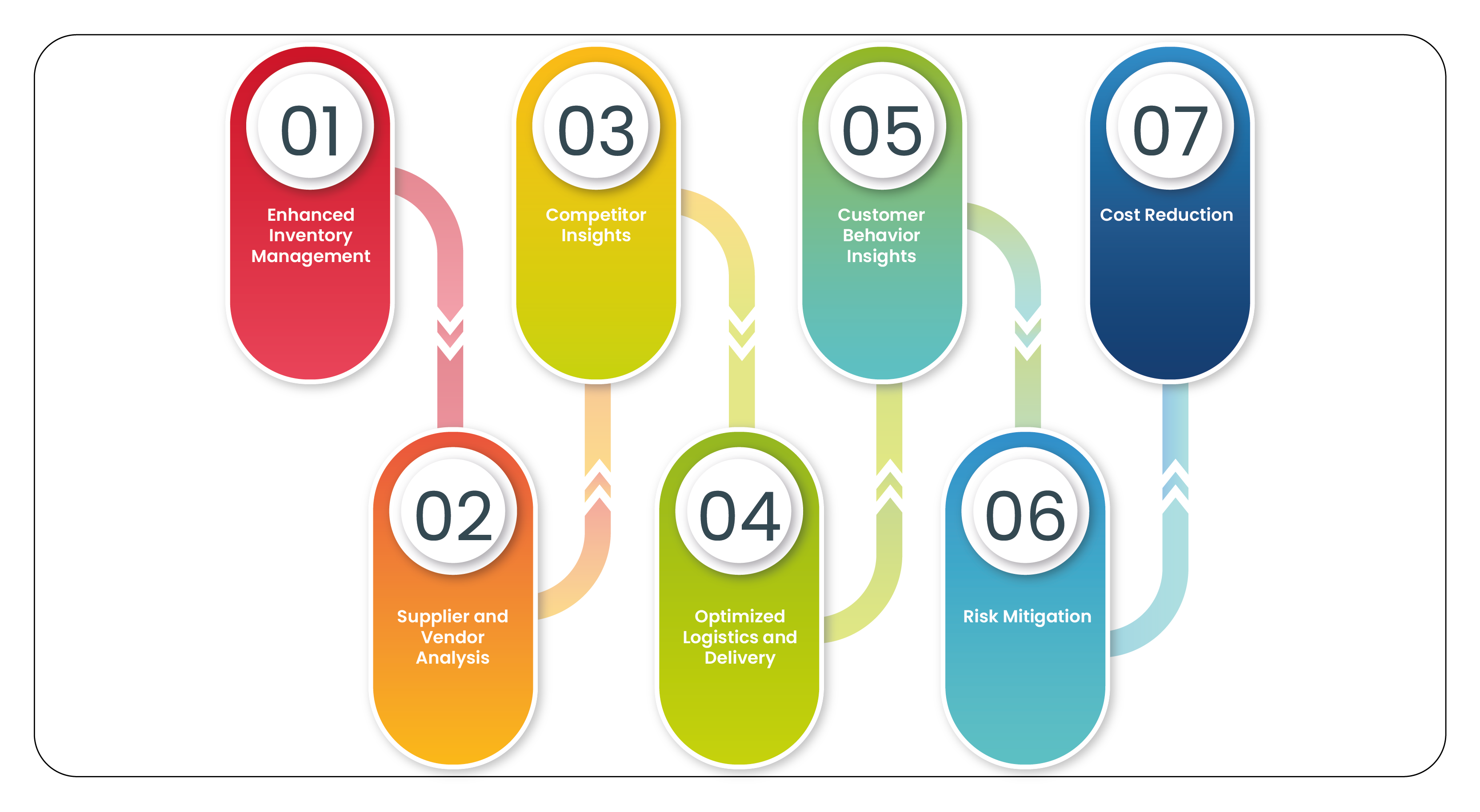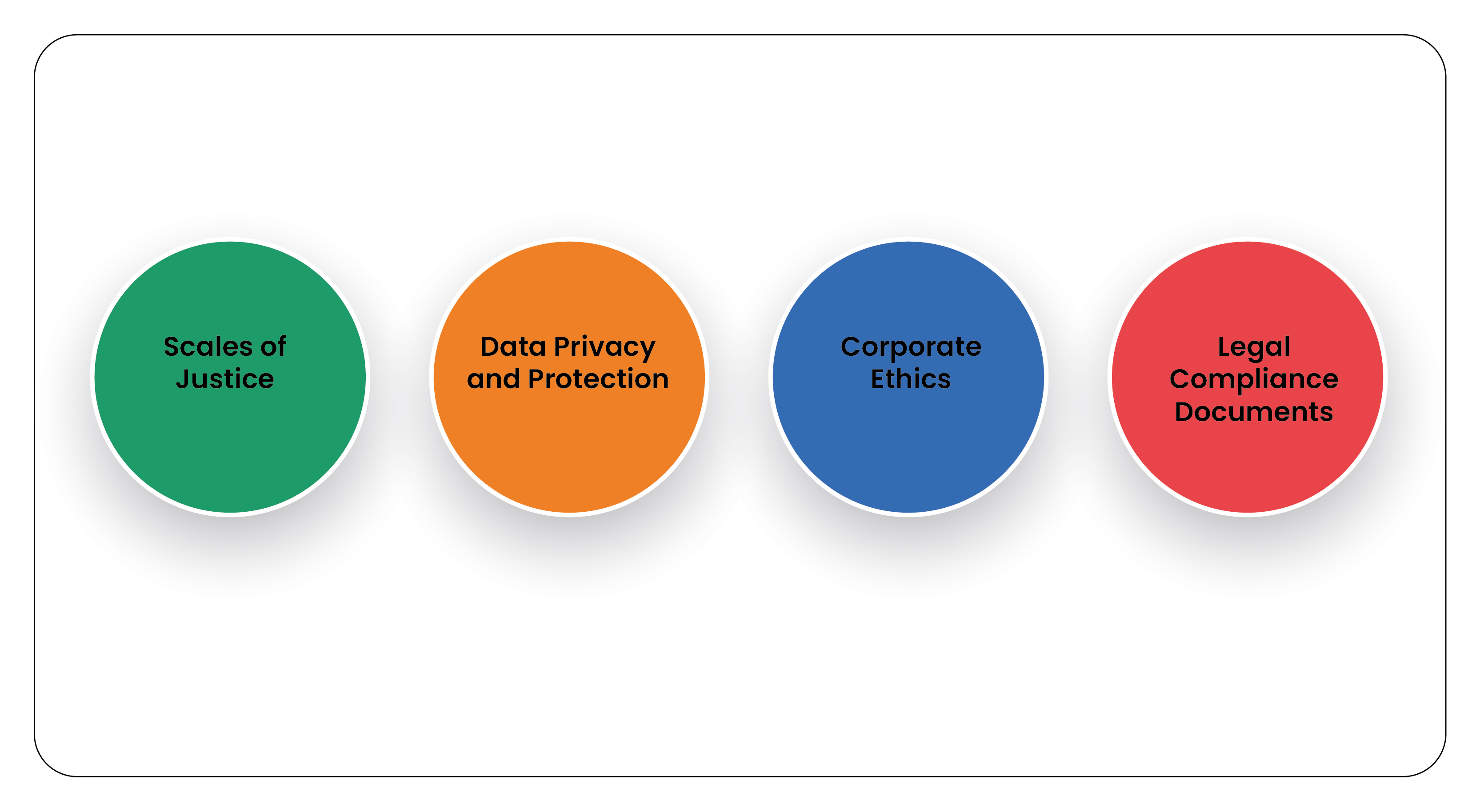
Introduction
In today’s digitally driven world, e-commerce has revolutionized global retail by providing unmatched convenience and accessibility. Behind the smooth online shopping experience, however, lies a complex and ever-evolving supply chain. The success of an e-commerce platform hinges on its ability to optimize supply chain operations, which include inventory management, supplier coordination, logistics, and delivery. This is where E-commerce supply chain data scraping plays a crucial role. By utilizing web scraping for supply chain insights, businesses can gain valuable data from various sources to improve decision-making and enhance operational efficiency. Supply chain optimization with data scraping enables companies to stay ahead of competitors by streamlining processes, reducing costs, and ensuring timely deliveries. By tapping into valuable data from suppliers, competitors, and customers, businesses can refine their strategies, forecast demand, and maintain a competitive edge in the rapidly evolving e-commerce industry.
Understanding E-commerce Supply Chain Data Scraping

E-commerce supply chain data scraping involves extracting valuable information from various online sources related to supply chain operations. This data can encompass supplier details, product availability, pricing trends, shipment tracking, customer feedback, and competitor strategies. By leveraging web scraping technologies, businesses can collect, analyze, and utilize this data to make data-driven decisions, streamline operations, and enhance customer satisfaction.
E-commerce logistics data extraction is vital in tracking shipment progress and delivery timelines, ensuring businesses meet customer expectations. Real-time supply chain data scraping informs companies about inventory levels, disruptions, and other critical factors that may impact operations. Product availability data scraping also enables businesses to monitor stock levels across multiple platforms and suppliers, ensuring they maintain sufficient inventory to meet customer demand.
Benefits of E-commerce Supply Chain Data Scraping

E-commerce supply chain data scraping offers businesses valuable insights into enhancing efficiency, optimizing inventory, tracking competitor strategies, and improving customer satisfaction. By leveraging real-time data, companies can streamline operations, reduce costs, and make informed decisions to stay competitive.
1. Enhanced Inventory Management: Effective inventory management is a cornerstone of successful e-commerce operations. Data scraping allows businesses to monitor stock levels, track product demand, and predict future trends. By analyzing historical and real-time data, companies can avoid overstocking or understocking situations, reducing storage costs and improving customer satisfaction. For instance, scraping competitor websites for product availability data provides insights into market demand and helps businesses align their inventory strategies accordingly. Additionally, analyzing seasonal trends through scraped data enables companies to effectively plan for peak demand periods. This is part of the broader approach of supply chain efficiency with data extraction, ensuring smooth operations.
2. Supplier and Vendor Analysis: The foundation of a robust supply chain lies in reliable suppliers and vendors. E-commerce businesses can use data scraping to gather information about potential suppliers, their pricing, delivery schedules, and reputation. This information aids in selecting the best partners and negotiating favorable terms. Furthermore, regular scraping of supplier websites helps monitor price fluctuations, ensuring businesses procure raw materials and products at competitive rates. It also enables companies to identify alternative suppliers in case of disruptions, reducing dependency on a single source. Companies can extract e-commerce data on vendor performance, fostering better relationships and informed decisions.
3. Competitor Insights: In the highly competitive e-commerce landscape, staying ahead of competitors is crucial. Supply chain data scraping allows businesses to track competitor strategies, pricing models, and promotional activities. By analyzing this data, companies can identify market gaps, refine their pricing strategies, and develop unique value propositions. For example, monitoring competitors’ shipping times and logistics partners can reveal areas where a business can outperform them. This data also supports the identification of emerging trends, enabling companies to adapt and innovate proactively. Regular web scraping e-commerce websites helps businesses stay agile and informed.
4. Optimized Logistics and Delivery: Efficient logistics and delivery are vital for meeting customer expectations. Data scraping is pivotal in optimizing these processes by providing real-time updates on shipping routes, carrier performance, and delivery times. By scraping tracking information from logistics providers, businesses can identify bottlenecks in the supply chain and implement solutions to enhance efficiency. Moreover, analyzing delivery patterns helps identify regions with high demand, enabling companies to establish localized distribution centers and reduce shipping times. Using eCommerce dataset scraping further refines logistics by offering comprehensive data analysis.
5. Customer Behavior Insights: Understanding customer preferences and behaviors is essential for e-commerce success. Supply chain data scraping facilitates the collection of customer reviews, ratings, and feedback from various platforms. This data provides valuable insights into product quality, delivery experiences, and areas for improvement. Businesses can refine their offerings by analyzing customer sentiment, addressing pain points, and building stronger relationships with their target audience. Additionally, this data helps predict future demand patterns and tailor marketing strategies to specific customer segments. Price monitoring through customer feedback helps businesses adjust to market conditions.
6. Risk Mitigation: Supply chain disruptions can have far-reaching consequences for e-commerce businesses. Data scraping aids in identifying potential risks by monitoring external factors such as geopolitical events, natural disasters, and regulatory changes. For instance, scraping news sources and industry reports provides insights into supply chain vulnerabilities and enables companies to develop contingency plans. By staying informed about global events, businesses can proactively adjust their supply chain strategies to minimize disruptions. Proactive web scraping e-commerce websites for risk-related updates is key to maintaining resilience.
7. Cost Reduction: One significant advantage of supply chain data scraping is its ability to uncover cost-saving opportunities. Businesses can identify areas where expenses can be minimized by analyzing pricing data, shipping rates, and operational inefficiencies. For example, scraping competitor data for pricing trends allows companies to set competitive prices while maintaining profitability. Similarly, monitoring logistics costs through scraped data helps select cost-effective shipping options without compromising delivery speed. This is essential to pricing strategies, ensuring sustainable growth and efficiency.
Ethical and Legal Considerations

While supply chain data scraping offers numerous benefits, it is essential to approach it ethically and within legal boundaries. Businesses must respect website terms of service, obtain permission where required, and ensure compliance with data protection regulations.
Adopting ethical scraping practices mitigates legal risks and fosters trust with partners and customers. Companies should prioritize data accuracy, transparency, and security to maintain a positive reputation in the industry.
Future of E-commerce Supply Chain Data Scraping

As technology advances, the future of e-commerce supply chain data scraping holds immense potential. Artificial intelligence (AI) and machine learning (ML) are expected to play a pivotal role in enhancing the efficiency and accuracy of data scraping processes.
AI-powered tools can analyze vast amounts of data in real time, providing actionable insights for supply chain optimization. Predictive analytics, enabled by ML algorithms, will further enhance demand forecasting, inventory planning, and risk assessment.
Additionally, the integration of blockchain technology with supply chain data scraping is on the horizon. Blockchain offers enhanced transparency and traceability, ensuring the authenticity of scraped data and improving trust across the supply chain network.
Conclusion
E-commerce supply chain data scraping is a game-changer for businesses seeking to thrive in a fast-paced and competitive market. By leveraging scraped data, companies can gain valuable insights into inventory management, supplier performance, logistics optimization, and customer behavior.
The benefits of supply chain data scraping extend beyond operational efficiency to include cost reduction, risk mitigation, and enhanced decision-making. However, ethical considerations and compliance with legal regulations are paramount to ensure responsible and sustainable data scraping practices.
As technology evolves, the potential of supply chain data scraping will continue to expand, empowering e-commerce businesses to adapt to changing market dynamics and deliver exceptional customer experiences. By embracing this transformative approach, companies can unlock new opportunities, drive growth, and establish themselves as leaders in the e-commerce industry.
At Product Data Scrape, we strongly emphasize ethical practices across all our services, including Competitor Price Monitoring and Mobile App Data Scraping. Our commitment to transparency and integrity is at the heart of everything we do. With a global presence and a focus on personalized solutions, we aim to exceed client expectations and drive success in data analytics. Our dedication to ethical principles ensures that our operations are both responsible and effective.





































.webp)






